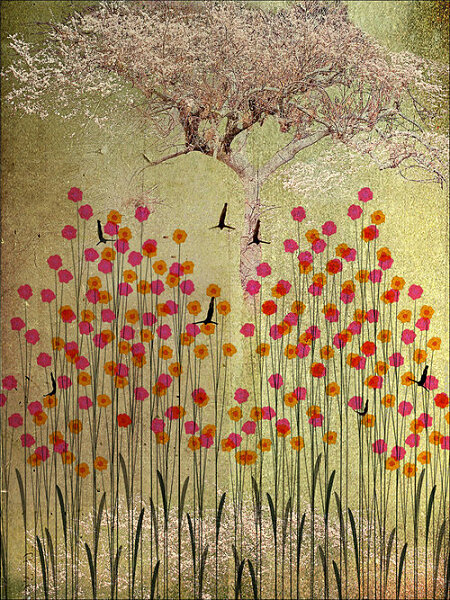
Bedwetter
If you want to know about me and my old man, picture the scorpion and the frog staring at each other at the bottom of the river. When I first heard the tale, I thought about the time at the swimming hole, when I was on my old man’s shoulders and he dumped me in the deepest part. I never have been able to swim well. I thought, too, about the kittens he bagged up from under the front porch, about how he took that squirming bag to the creek and came back empty-handed. Though it crawled with scampering crawdads, streaking fish, and darting waterbugs, the creek was a graveyard to me, ruled by a glassy-eyed scorpion king.
Before Ma died, she wouldn’t let me go to the creek alone. It’s dangerous, she’d say, and the old man would reprimand her for babying me. Go on, he’d say. Go down to the creek. I’d hesitate, stork-like on one foot, looking at Ma, who just shook her head. The old man took me out to the porch and locked the door behind me. Go on, he said through the windowpane. No one’s gonna baby you in the real world. And Ma turned away, saying, Lord, she can’t even swim. But she didn’t open the door.
When we did maps in school, I drew a map of the creek. Ma liked it, stuck it on the fridge. I drew all the landmarks with a clumsy hand: Spider Log, the mud bath, the bridge. I colored the swimming hole with the deepest, darkest, bluest pencil I could find, because it seemed an abyss to me. After the Big Flood, the map became useless; the creek no longer flowed under the many branches of Spider Log, and the mud bath dried up. By that time, I was older, and the only time I ever went to the creek was to sit under the bridge with the mud-daubers’ clay nests and drink to Ma. They looked like organ pipes, those nests, and I used to peer inside them and see hornets clustered there, asleep. It reminded me of the times I’d wet the bed when I was too old for that, and I would stand in my parents’ bedroom doorway, dreading waking them, guilty warmth on my legs. They’d be lying together on the bed, Ma softly snoring. One time I stood watching her for a long time before I realized my old man’s eyes were shining out of the dark, staring at me in silent stillness.
When he locked me out of the house that time, before I knew how to swim, I went down to the creek because he was watching me from the window, and I didn’t know what else to do. I stood scratching a mosquito bite on my calf with my other foot, watching clear water ripple over brown and orange and black rocks, the same colors as the little crawdads that, if you watched closely enough, you would see scampering from cove to cove, always moving backwards like they were looking over their shoulders at something chasing them. After a while, I went back to the house, but all the doors were locked, all the windows empty. I had to go to the bathroom, so I went back to the creek, squatted, and peed in it. Midway through, I realized again that the old man was watching me through the trees. He was laughing at me.
He laughed at me again when I told him I was writing this, about him. He said, What’s there to write? And I thought of the crawdads, the waterbugs, the scorpion and the frog. When I hung up the phone, I took out the box of things I’d brought from that house, and among cut-up family photos, a bottle of Ma’s perfume, and smooth, round pebbles taken from the creek, I found the map I’d drawn as a kid. I’d called the log Spider Log because of the massive black widow that had confronted me once in the middle of it. I had been crossing the creek barefoot when I lifted my foot over that bulbous black watchdog, marked with its fatal red insignia. I screamed and screamed, and when the old man saw what I was screaming about, he pinched two of the spider’s legs together and threw it at me and laughed. A man has his nature, Ma used to tell me. Your father’s nature is stormy, that’s all.
My old man isn’t a storm. He is a desert. Dry, unforgiving, relentless, full of crawling terrors and endless expanses of gritty pain. When I went to a desert for the first time in college, I was struck by the lack of green. Where I grew up, green is everywhere, swallowing us up in verdant hills, choking us with draping vines, sucking us down into soft beds of moss. It’s an active, alive green. The desert is just dead. It is the glassy-eyed scorpion at the bottom of the creek, hollow and stiff, staring. My old man is the same.
